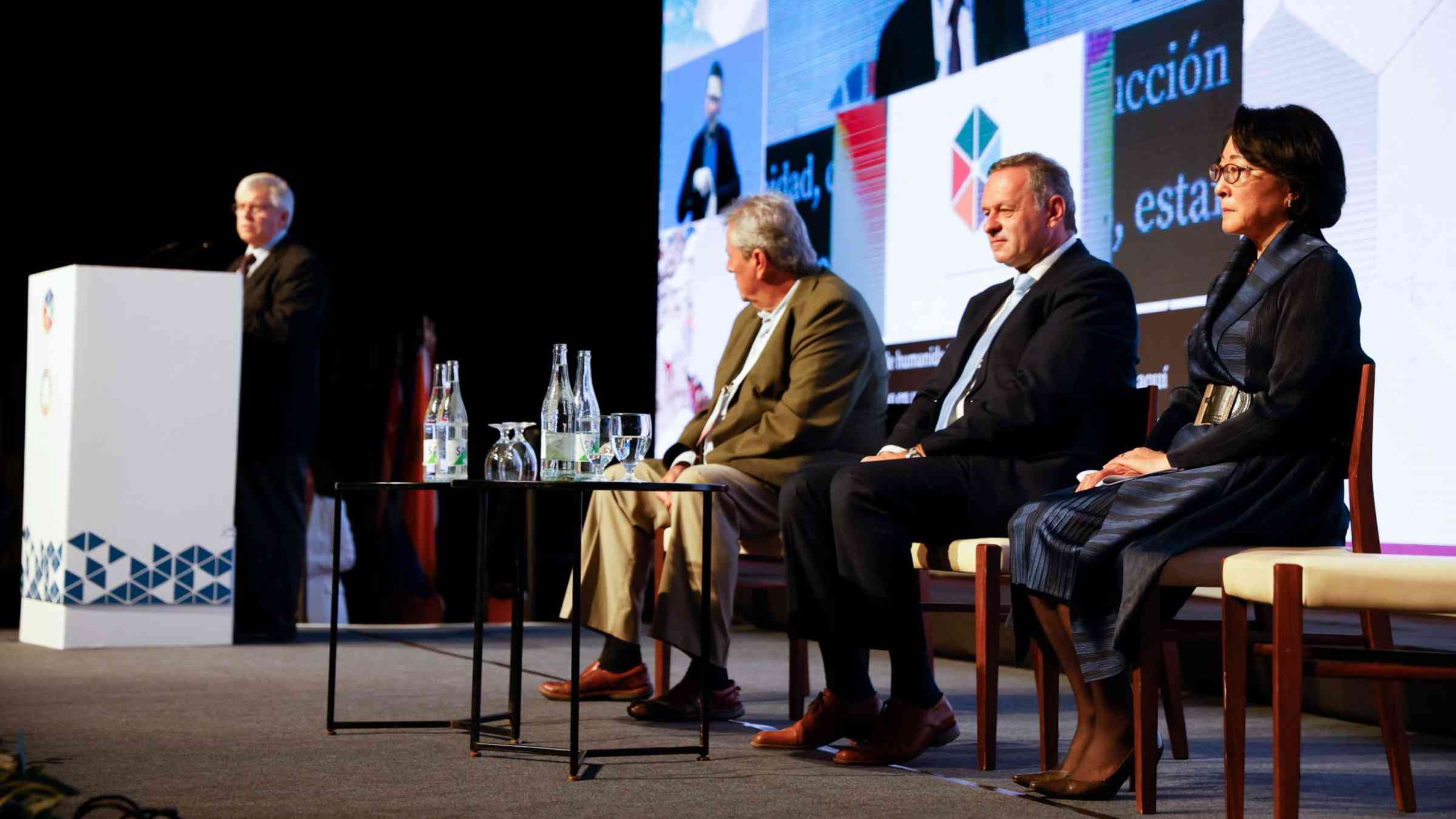Science and technology take centre stage at the RP23 opening

Science, technology and early warning systems will feature in this week’s VIII Regional Platform for Disaster Risk Reduction in the Americas and the Caribbean (RP23), the region's most important disaster risk reduction event.
From today until 2 March 2023, delegations from countries across the region will gather in the resort city of Punta del Este, Uruguay, to exchange experiences and facilitate decisions to implement the Regional Plan of Action agreed on in March 2017 and updated at the VII Regional Platform in November 2021.
"Science and technology are critical to informing decision-making and scaling up solutions for all aspects of risk reduction, including the expansion of early warning systems,” said Mami Mizutori, the United Nations Special Representative of the Secretary-General for Disaster Risk Reduction.
The platform will spotlight several key areas, including substantially increasing the availability of and access to multi-hazard early warning systems for people in the Americas and the Caribbean, strengthening governance for disaster risk reduction, promoting and financing sustainable and inclusive development and discussing urban risk reduction and post-disaster recovery.
Along with the plenaries, a range of side sessions will also take place, covering the role of women in sustainable disaster risk reduction, the vulnerability of United Nations Educational, Scientific and Cultural Organization Global Geoparks and Biosphere Reserves, and the resilience of critical infrastructure, such as energy, water and transportation.
To promote regional cooperation, commitment and leadership in disaster risk reduction and the exchange of best practices, RP23 will bring together a diverse range of stakeholders, including national and local governments, civil society organizations, the private sector and academia.
The stakeholders will examine factors surrounding disaster risk reduction, including poverty and inequality, as well as the role of young people and the inclusion of marginalized groups such as migrants, refugees, and people with disabilities, in risk reduction efforts.
According to the World Meteorological Organization, the number of weather-related disasters has increased fivefold in the last 50 years, partially due to human-induced climate change.
Meanwhile, a 2022 United Nations Office for Disaster Risk Reduction report found that only 12 countries in the Americas and the Caribbean – roughly one third – have existing multi-hazard early warning systems.
There is also a wide disparity between those that do and those that do not. The most robust early warning systems are found in the United States and Canada, for instance, while many small island developing States in the Caribbean and other Least Developed Countries in the region have none.
Adding to this poignant disparity is the vital role early warning systems play in protecting lives and livelihoods. A 2019 report from the Global Commission on Adaptation found that effective early warning systems can reduce damage from natural hazards by up to 30 per cent in the first 24 hours.
Continuing to implement the Sendai Framework in the Americas and Caribbean remains critical, especially as an estimated 53 per cent of global economic damage from disasters occurs there.
While cyclones, storms, floods, tsunamis, volcanic eruptions and earthquakes have traditionally received the most attention, RP23 will broach the increasing threats of biological hazards, droughts, heatwaves, landslides, sandstorms and wildfires, among others.
“RP23 is an opportunity to accelerate the implementation of the regional action plan,” said Mizutori. “Together with the engagement of all sectors and stakeholders, the conclusions of the RP23 will help set the region on a path towards a resilient future.”
